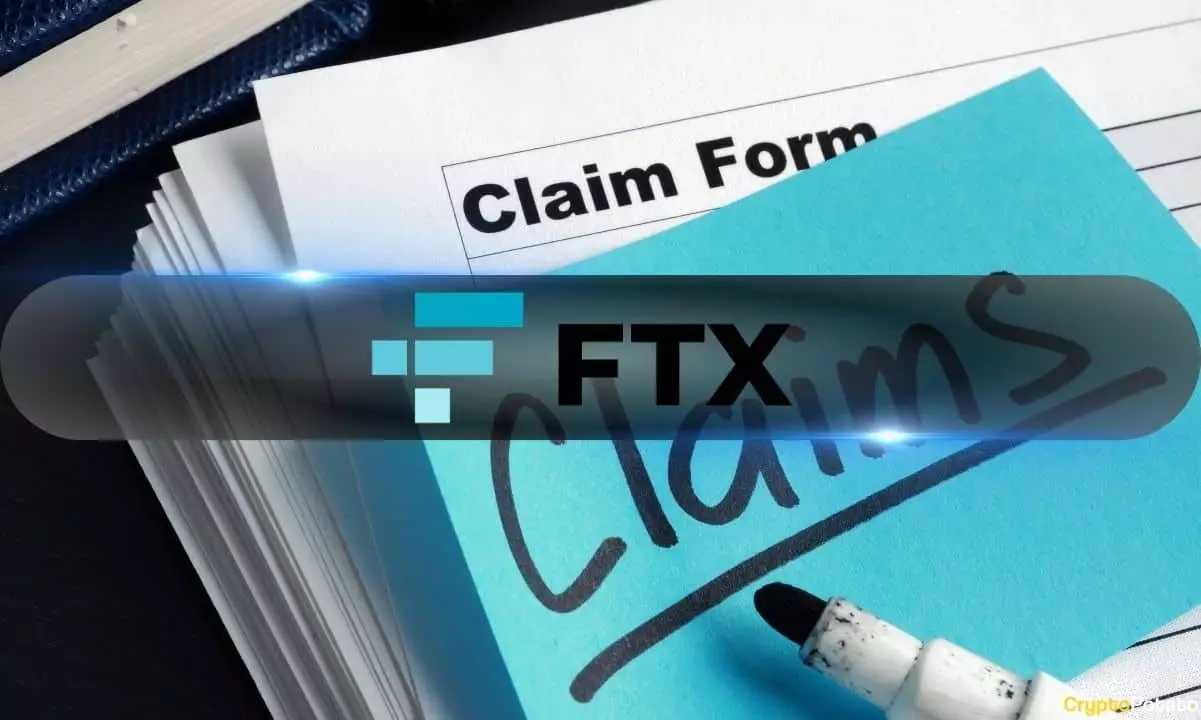The announcement from the FTX Recovery Trust regarding a staggering $5 billion payout to creditors starting from May 30 is a monumental moment for many involved in the scandalous collapse of the cryptocurrency exchange. However, beneath the surface of this seeming victory lies a plethora of complexities that thwart the idea of a straightforward recovery. As a center-right liberal, I hold the view that while this distribution represents a significant step forward, it serves as a double-edged sword that exposes the inadequacies and pitfalls of the system designed to protect investors in an ostensibly democratic financial landscape.
Understanding the Recovery Classes
The categorization of creditors into distinct “convenience classes” raises more than just eyebrows—it forces us to reconsider the very nature of fairness in financial recovery. With Class 5A slated for a 72% distribution and Class 5B receiving a mere 54%, there exists a glaring disparity that calls the ethics of such decisions into question. What criteria were utilized to devise these classes? The current framework seems to privilege certain types of creditors over others, which breeds distrust and can potentially undermine public confidence in the broader financial regulatory landscape. For instance, the grouping of small lenders and Alameda Research trading partners into Classes 6A and 6B at 61% creates a narrative that larger players are favored while smaller investors—the backbone of any equitable economic system—are left with only a fraction of their initial investments.
Fallacy of “Convenience Claims”
The notion of “convenience claims” cannot escape scrutiny either. Although they cater to smaller creditors holding claims under $50,000, the psychological impact of such categorizations is far-reaching. When a financial system prioritizes convenience over equity, it essentially erodes the foundational principles of justice that investors expect from their markets. The first round of reimbursements seems to offer a remedial lifeline; however, the question remains—do these claims further entrench the inequality that many are striving to dismantle in society? Those with “convenience claims” may celebrate their payments, but the structural fails therein persist for the larger group of claimants.
Technological Dependence: A Double-Edged Sword
Compounding the issues of equity, the use of distribution service providers like Bitgo and Kraken implies a gravitation towards tech-based solutions for crises birthed by technological arrogance. While technological innovation is lauded as a game-changer, it also introduces a layer of dependency that complicates fund retrieval. Entering into this realm, creditors exempt themselves from receiving funds directly from the bankrupt exchange, placing all their eggs in the basket of service providers. While this arrangement is not inherently flawed, it does present risks that vulnerable investors should be acutely aware of—such as loss of agency over their own assets.
Legal Proceedings and the Quest for More Recovery
Even as the Recovery Trust lays out plans for the distribution, it must also contend with its ongoing legal battles against entities like NFT Stars Limited and Delysium. These actions aim to recoup digital assets purportedly withheld from the bankruptcy estate; they are vital, yet they shed light on the impracticalities of a recovery procedure still mired in complexities. Why, in a so-called advanced financial ecosystem, are legal proceedings necessary to reclaim digital assets? This brings to light the broader problem of regulatory inadequacies that exist in our current legal frameworks surrounding cryptocurrency—a sector that desperately needs clarity.
The Value Dilemma
Despite the seemingly positive trajectory of repayments, the model hinges on the timing of crypto values at the point of collapse. Such an approach could culminate in a travesty where creditors end up receiving less than the current market value of their holdings—a glaring betrayal of trust that investors ought to challenge. This discrepancy plays right into the hands of skeptics who argue that the financial system is rigged against the common investor and favors those already entrenched in power.
While the FTX Recovery Trust’s announcement signals progress for some creditors, one must remain vigilant about the intricacies and pitfalls that could undermine the integrity of this recovery process. Rather than heralding uncritical triumph, we should adopt a more analytical view that scrutinizes the broader implications of equity, technology, and justice within the financial landscape.















